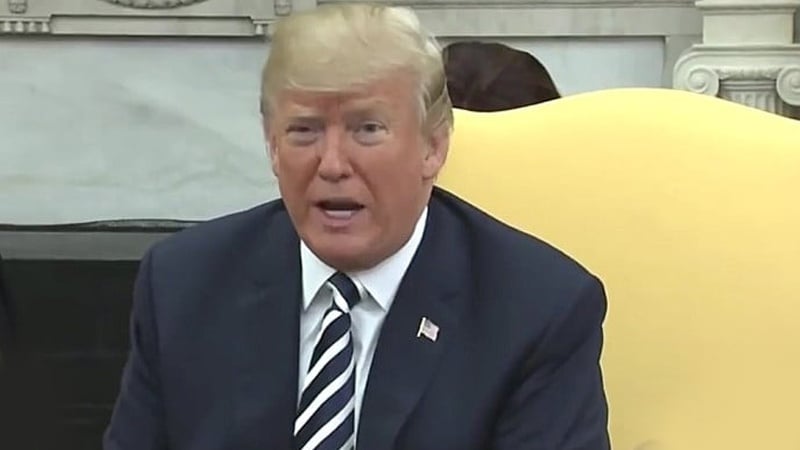What is Trump’s aim in claiming he is negotiating with Iran?
-

US President, Donald Trump
Pars Today — Trump’s claim that there is an ongoing negotiation with Iran is neither a simple mistake nor a diplomatic misunderstanding.
Coinciding with the Saudi Crown Prince Mohammed bin Salman’s visit to the White House, Donald Trump once again made a claim that the Iranian government immediately denied. According to Pars Today citing Fars News, Trump said, “I think Iran is very eager for an agreement, and we’ve started a process.” But Iran’s Foreign Ministry spokesperson explicitly stated that “no negotiation process exists between Tehran and Washington,” calling Trump’s assertion baseless. Why, then, is Trump telling such an obvious lie?
Fabricating achievements in foreign policy
To understand Trump’s behavior, one must look at his consistent pattern in recent years. During his first term, he repeatedly tried to manufacture achievements that did not actually exist, inflating and distorting reality. He spoke of “historic peace on the Korean Peninsula” even though the process stalled after a few theatrical meetings. He claimed that “the wars in the Middle East are over,” though none ended and some crises even intensified.
He promoted the so-called Abraham Accords as a “major breakthrough,” despite the fact that they did not resolve the region’s core problems and were largely symbolic. This pattern shows that rather than relying on facts, Trump prefers to craft narratives that portray himself as victorious. He knows that a significant portion of his voter base cares less about fact-checking and more about the image of him being powerful. In this framework, claiming to have initiated talks with Iran helps him project an image of “controlling the game” and personal authority.
This impulse has grown stronger as Trump’s domestic approval rating in his second term has sharply fallen—from 47% to around 38%. This steep decline has increased his need to fabricate foreign-policy wins and rely on “diplomatic storytelling” to rebuild his political credibility. He cannot change reality, but he can reshape the narrative in order to preserve his political standing.
Trump’s psychological need for attention and its role in narrative fabrication
Political-psychology analyses of Trump show that he has a chronic need to be seen. He expects to remain the center of attention and wants his name to appear in headlines every day. For someone with this personality, disappearing from the news cycle is a psychological threat.
Within this mindset, the absence of real events is no obstacle—Trump has repeatedly shown that if there is no news, he will create it. The claim of ongoing talks with Iran fits exactly this logic. By putting such a subject on the table, he casts himself as a central Middle East actor and presents himself once again to the U.S. media as a key player in global crises.
The timing of the claim is also deliberate. Bin Salman’s presence at the White House provided Trump with an opportunity to bring Iran back into the spotlight and suggest to American media that he is managing a major regional file. In doing so, he fills the gap left by the absence of real achievements and creates the impression that he remains at the center of Middle Eastern dynamics.
Managing regional allies
Another dimension of this claim relates to Trump’s regional calculations. After years of tension with Iran, Saudi Arabia has begun a new path of de-escalation and is no longer seeking direct confrontation. In this context, Trump worries that Washington’s traditional allies may conclude that the United States has lost its central role in regional politics. Thus, by asserting that “Iran wants an agreement,” he signals to these allies that he still controls the Iran file and that Washington remains the key player in regional security. He wants to create the impression that without the United States, no process can take shape—and that even Iran has supposedly returned to talks under U.S. pressure.
Psychological pressure on Iran
Trump and his national-security team know very well that announcing the start of talks with Iran—especially when Tehran denies it—can create psychological pressure. The tactic is not intended to initiate negotiations but to project an image of division or indecision in Tehran. During Trump’s first term, this technique was used repeatedly. He often spoke of “calls from Iran” that never existed, statements made solely to exert psychological pressure and reinforce a narrative of American strength.
The goal is to place Iran in a position where it must respond and defend its stance in the media, thereby entering a reactive posture.


